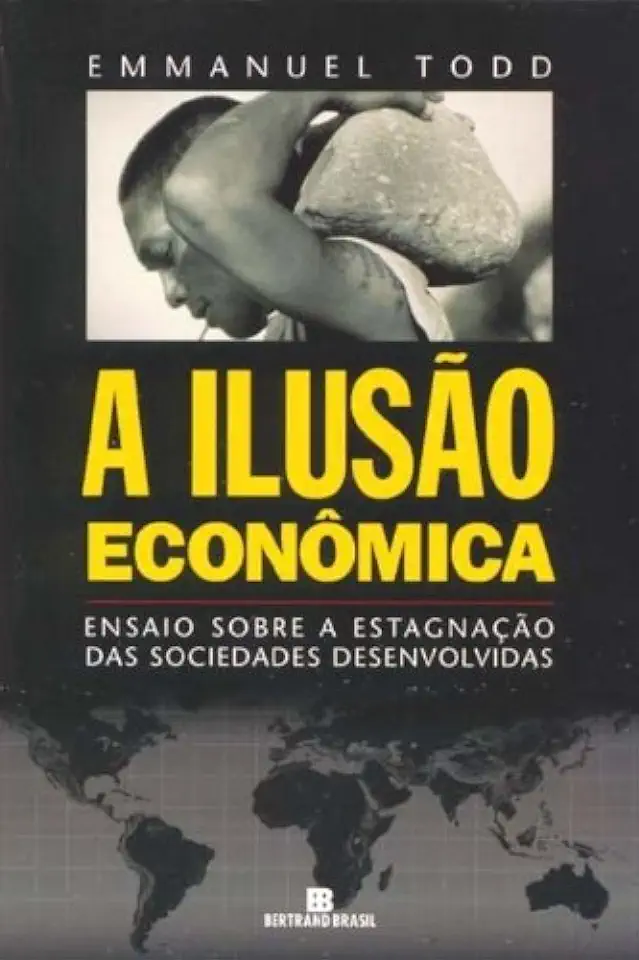
The Economic Illusion - Emmanuel Todd
The Economic Illusion: The End of Growth and the Beginning of a New Era
Introduction
In his groundbreaking book, "The Economic Illusion," Emmanuel Todd argues that the world is on the cusp of a major economic transformation. The era of perpetual growth that has defined the past two centuries is coming to an end, and we are entering a new era of economic stagnation.
Todd's thesis is based on a number of factors, including the declining birth rate, the rising cost of energy, and the increasing inequality of wealth. He argues that these factors are creating a perfect storm that will lead to a prolonged period of economic stagnation.
The Declining Birth Rate
One of the most important factors driving the end of growth is the declining birth rate. In the past, population growth was a major driver of economic growth. As the population grew, so did the demand for goods and services. This led to a virtuous cycle of growth, in which economic growth led to more population growth, which led to even more economic growth.
However, the birth rate has been declining in most developed countries for decades. This is due to a number of factors, including the rising cost of living, the increasing number of women in the workforce, and the changing social norms around family size.
The declining birth rate is having a number of negative consequences for the economy. First, it is leading to a shrinking labor force. This is making it more difficult for businesses to find workers, which is driving up wages and inflation. Second, the declining birth rate is leading to a shrinking consumer base. This is reducing the demand for goods and services, which is slowing economic growth.
The Rising Cost of Energy
Another major factor driving the end of growth is the rising cost of energy. Energy is essential for economic growth. It is used to power factories, transport goods, and heat homes. As the cost of energy rises, it becomes more expensive for businesses to produce goods and services. This leads to higher prices for consumers, which reduces demand and slows economic growth.
The rising cost of energy is also having a negative impact on the environment. The burning of fossil fuels is releasing greenhouse gases into the atmosphere, which is contributing to climate change. Climate change is already having a number of negative consequences for the economy, including more extreme weather events, rising sea levels, and the loss of biodiversity.
The Increasing Inequality of Wealth
The third major factor driving the end of growth is the increasing inequality of wealth. In the past, the benefits of economic growth were shared relatively evenly across society. However, in recent decades, the rich have been getting richer while the poor have been getting poorer. This is due to a number of factors, including the decline of unions, the deregulation of the financial industry, and the increasing globalization of the economy.
The increasing inequality of wealth is having a number of negative consequences for the economy. First, it is reducing the demand for goods and services. The rich have a much higher savings rate than the poor, so they are not spending as much money on goods and services. This is slowing economic growth. Second, the increasing inequality of wealth is leading to social unrest. The poor are becoming increasingly frustrated with the fact that they are not sharing in the benefits of economic growth. This is leading to social unrest, which can disrupt the economy.
The New Era of Economic Stagnation
Todd argues that the combination of the declining birth rate, the rising cost of energy, and the increasing inequality of wealth is creating a perfect storm that will lead to a prolonged period of economic stagnation. This stagnation will be characterized by slow growth, high unemployment, and rising inflation.
The new era of economic stagnation will be a major challenge for the world. It will require us to rethink our economic policies and our way of life. We will need to find new ways to create jobs, reduce inequality, and protect the environment.
Conclusion
"The Economic Illusion" is a must-read for anyone who wants to understand the future of the global economy. Todd's analysis is clear, concise, and persuasive. He provides a wealth of evidence to support his thesis, and he offers a number of thought-provoking insights into the challenges that we face.
If you are interested in the future of the global economy, I highly recommend that you read "The Economic Illusion." It is a book that will change the way you think about the world.
Enjoyed the summary? Discover all the details and take your reading to the next level — [click here to view the book on Amazon!]